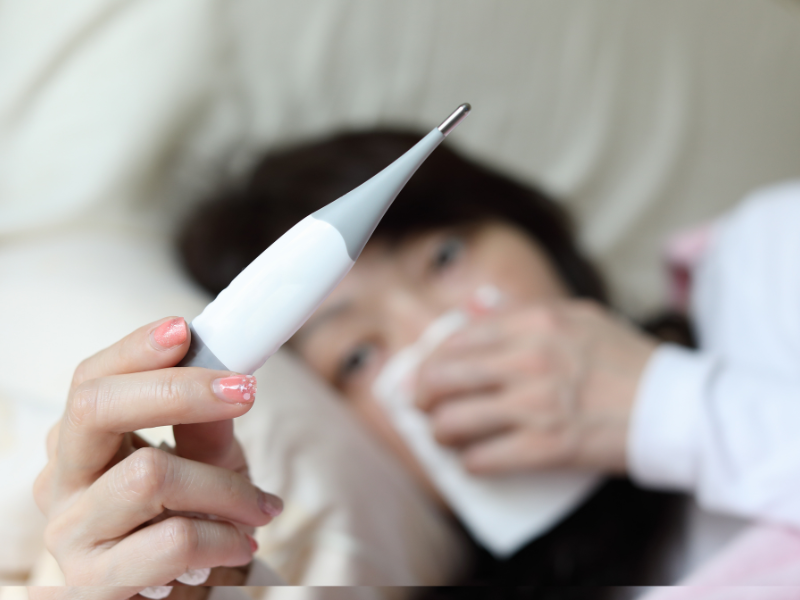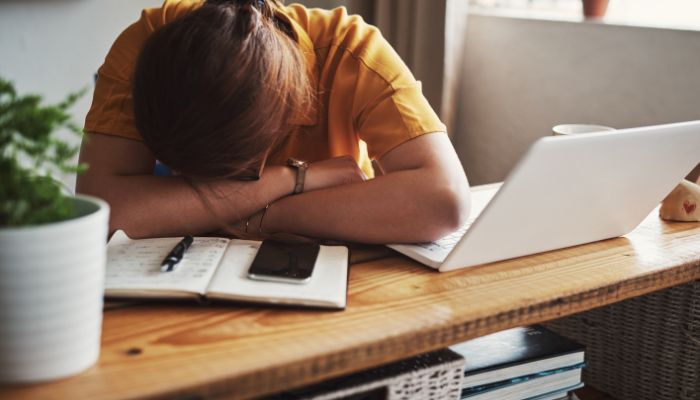


Among the various ripple effects of COVID-19, coronosomnia has managed to get the lead. Researchers have found that COVID has drastically affected patients’ sleep quality, making it very difficult to sleep with a fever COVID.
Sleep is essential for the human body, as it keeps us emotionally and physically strong and fit. But users claim that sleeping with a fever COVID seems to be second to impossible. The fatigue, weakness, anxiety, and fear of death snatch even the slightest hue of napping.
However, to help you sleep with a fever COVID, we have come up with a handful of steps to follow.
So, let’s directly dwell on the steps!

Where pandemic has been a successful host of various challenges, a common challenge is Coronosomnia.
Coronosomnia is coined for the sleeping difficulties faced by users suffering from COVID fever or its aftermath. And you will surely be astonished to find that COVID has affected the sleeping pattern of nearly 40% of the patients.
Moreover, a survey showed that symptoms of COVID like intense cough and fever interfered with normal breathing patterns and thus with sleep too.
Similarly, people with a long COVID experience sleep difficulties for several months.
Where sleeping with a fever COVID seems next to impossible, the crucial effect of blue light clues on your circadian rhythm and the sleep-wake cycle can not be overlooked.
Therefore, it is better to reduce blue light exposure during a COVID fever for two reasons:
Relaxation exercises also help you cope with sleep insomnia, precisely due to COVID, by making your mind relaxed and at ease.
However, don’t go for any intense workout that can make you go short of breath.
You can try yoga, meditation, white music, mindful stretches, etc., to make your mind relaxed and release endorphins, the relaxing hormones. For example, you can watch a comedy movie or a video call with your friends.

Another step to better sleep with a fever COVID is to eat healthy stuff. Avoid sugary and fatty foods, and instead shift to food rich in protein and carbohydrates like fresh fruits, vegetables, and meat.
Moreover, limit your caffeine intake, and avoid alcohol as your immune system is already weak. Instead, consume juices that are great sources of vitamins and minerals. Keep a glass of water by your side at all times.
The worst part of COVID is that it leaves you tired, exhausted, and fatigued during the day with zero energy level. As a result, you are tempted to take occasional naps and stay in bed the whole day.
Try not to remain in bed the whole day. Instead, try a few healthy activities daily to help you stay active during the day. For example, you can write a morning or evening journal, read a book, or do light exercises.
Similarly, keep your evening naps short and confined to almost 10 to 20 minutes.

Having a solid nightly rest is important to juggle the effects of COVID-19. Here are a few reasons why:
Apart from the above steps, here are some additional tips to help you sleep with a fever COVID and grant you a speedy recovery:

Although it is hard to sleep with a fever COVID, it is essential for a speedy recovery from COVID and sound health. From making a strict routine to doing meditation, there are multiple things you can try out to ease the process of sleep.
So, opt for these steps to enjoy a sound sleep with a fever COVID and give your body the necessary fuel to survive COVID-19!
Akerstedt, T., & Nilsson, P. M. (2003). Sleep as restitution: an introduction. Journal of internal medicine, 254(1), 6–12. https://doi.org/10.1046/j.1365-2796.2003.01195.x
Donzella, S. M., Kohler, L. N., Crane, T. E., Jacobs, E. T., Ernst, K. C., Bell, M. L., Catalfamo, C. J., Begay, R., Pogreba-Brown, K., & Farland, L. V. (2022). COVID-19 Infection, the COVID-19 Pandemic, and Changes in Sleep. Frontiers in public health, 9, 795320. https://doi.org/10.3389/fpubh.2021.795320
Newsom, R. (2024) Relaxation Exercises To Help Fall Asleep [online]. https://www.sleepfoundation.org/sleep-hygiene/relaxation-exercises-to-help-fall-asleep
McMurray, R. G., Fafrowicz, J. F., & Berry, M. (1988). The endorphin response of women to sleep loss and exercise. Aviation, space, and environmental medicine, 59(2), 129–132.
Morin, C. M., Bjorvatn, B., Chung, F., Holzinger, B., Partinen, M., Penzel, T., Ivers, H., Wing, Y. K., Chan, N. Y., Merikanto, I., Mota-Rolim, S., Macêdo, T., De Gennaro, L., Léger, D., Dauvilliers, Y., Plazzi, G., Nadorff, M. R., Bolstad, C. J., Sieminski, M., Benedict, C., … Espie, C. A. (2021). Insomnia, anxiety, and depression during the COVID-19 pandemic: an international collaborative study. Sleep medicine, 87, 38–45. Available at: https://www.sciencedirect.com/science/article/pii/S1389945721004032?via%3Dihub
Sushanth Bhat, Sudhansu Chokroverty (2022) Sleep disorders and COVID-19. Sleep Medicine. Vol 91: 253-261,
https://doi.org/10.1016/j.sleep.2021.07.021.